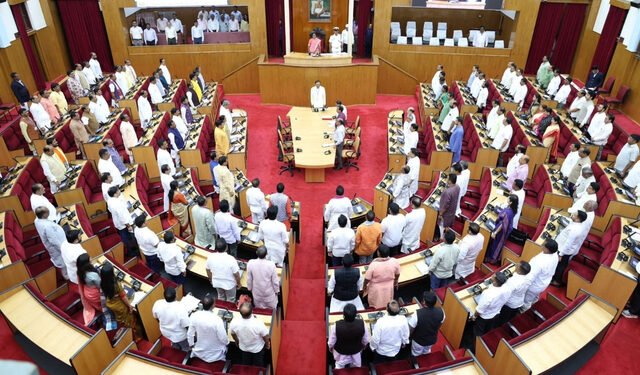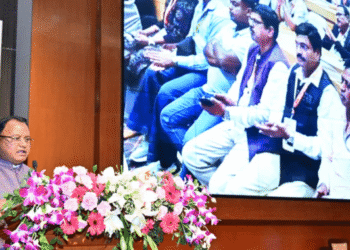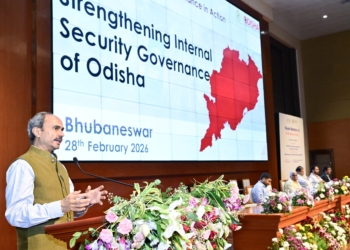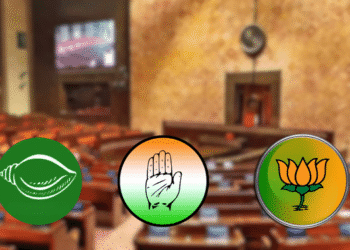In the tussle between Congress and BJD, the ruling BJP has managed to gain an advantage.
During the seven-day monsoon session of the Odisha Assembly, apart from the first day dedicated to condolences, four days were completely washed out due to opposition uproar, while on one day, both oppositions participated in discussions. This has directly and indirectly favored the ruling BJP, as per discussions in political circles.
The short-duration session of the Assembly began on the 18th, with the first day adjourned after a condolence motion for deceased members. On the 19th and 20th, BJD stalled the House over the issue of fertilizer shortage in the state. Similarly, on the 22nd and 23rd, BJD targeted the government on the reduction of powers for panchayat representatives, leading to protests both inside and outside the House. For four days, BJD members disrupted proceedings by holding posters and placards, raising slogans, and rendering the House non-functional.
On the other hand, Congress, after its no-confidence motion was rejected, continued to protest by standing at their seats. On the day the House was adjourned sine die, they created chaos during question hour. Numerically, the no-confidence motion posed no threat to the BJP government. However, if discussed in the Assembly, it would have given the opposition a chance to highlight the state government’s failures to the public. Issues like law and order, unemployment, women’s safety, farmers’ concerns, education, drinking water, and protection of Dalits and tribals could have cornered the government. Nevertheless, Congress made full efforts to gain mileage from the no-confidence motion.
However, the main opposition party, BJD, prepared a strategy to assert its influence over Congress. BJD did not clarify its stance on the no-confidence motion. In subtle terms, it did not support the motion against the state government. Although as the chief opposition, BJD had the opportunity to highlight the government’s failures through extended discussions in the Assembly, it deliberately let go of that chance. Instead, by stalling the House, it prevented the no-confidence motion from being discussed, leading to talks in political circles.
If the no-confidence motion had been debated, wouldn’t it have been inconvenient for BJD to raise issues like fertilizer crisis and attacks on the three-tier panchayati raj system? Political experts opine that disrupting the House to deprive Congress of the opportunity to bring the no-confidence motion was part of BJD’s strategy.
Meanwhile, the fourth or monsoon session of the 17th Assembly concluded a day ahead of the scheduled working days. The session started from September 16, and as per the agenda, the House was supposed to run until September 25.






























